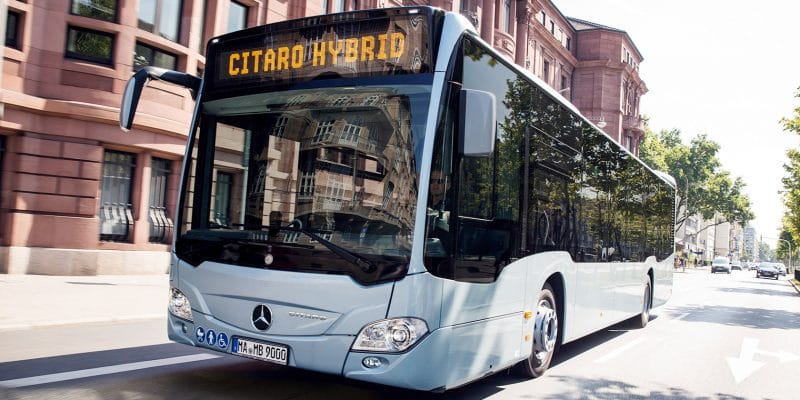In Morocco, a Mercedes electric bus will run for 14 days in the streets of the capital Rabat. Called "eCitaro", the vehicle is being tested as part of an initiative to equip the Moroccan urban transport system with electric vehicles.
The Moroccan authorities’ initiative aims to introduce sustainable and economically viable urban transport solutions as part of a Public Private Partnership (PPP) with the German car manufacturer Mercedes. For two weeks, the new electric bus, called “eCitaro”, will circulate in the capital Rabat.
“We are proud to be able to initiate this historic shift towards sustainable mobility in a city of strategic importance to our group, which is Rabat. With our partners, we are thinking about concrete solutions that can be applied in the field to provide users with a quality of service that meets international standards,” says Adil Benanni, the head of Auto Nejma, the exclusive distributor of the German brand Mercedes in Morocco.
Following the announcement of this partnership, an international conference was organized with the Moroccan Agency for Energy Efficiency, the European Bank for Reconstruction and Development (EBRD) and Alsa, the company in charge of urban, tourist, personal and school transport in six major cities, including Marrakech and Agadir.) The discussions focused on the need to provide the city of Rabat with electric buses in line with the vision of sustainable development of the Cherifian kingdom.
The necessary energy transition
According to the mayor of Rabat, Asmae Rhlalou, this initiative is part of an approach aimed at anticipating the needs of sustainable urban mobility and climate and economic issues related to the operation of buses.
Read also-MOROCCO: Tesla starts up two charging stations for electric vehicles
It should be noted that Morocco is on the world list of the five countries most committed to the fight against climate change. It is in this context that the European Union (EU) will mobilize 1.6 billion euros (nearly 18 billion Moroccan dirhams) from 2022 to finance its energy transition. This new agreement between the two partners will contribute to the North African kingdom’s objective of increasing the share of renewable energy in its electricity mix by 52% by 2025.
Benoit-Ivan Wansi







